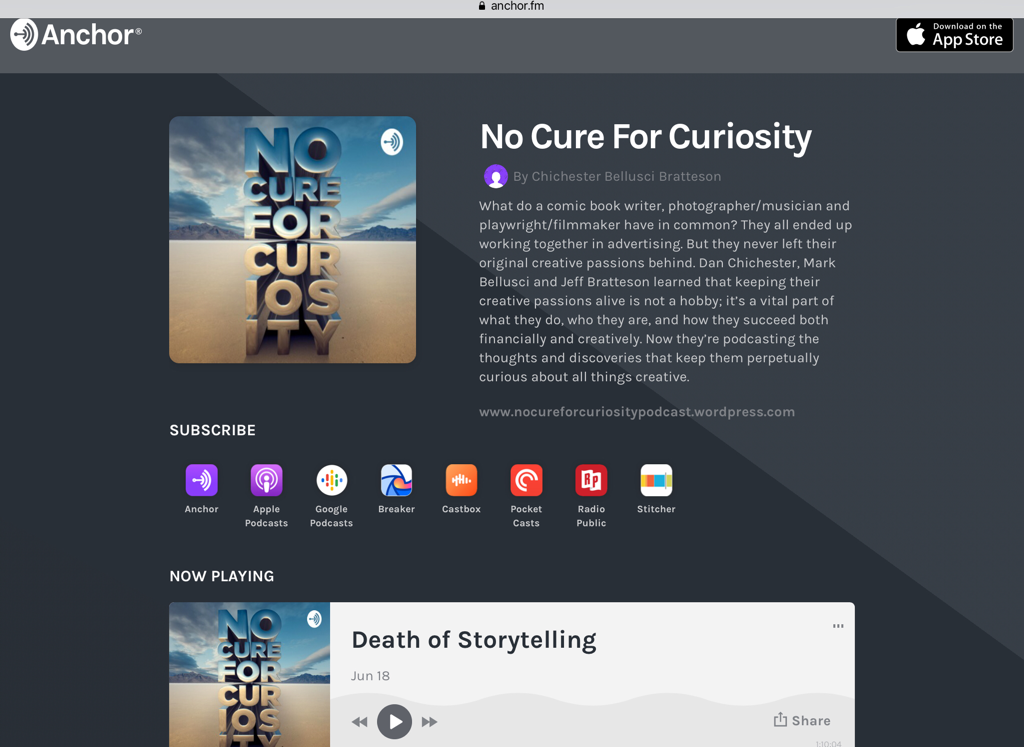|
Paul Shaffer is a musician's musician. He has played with, arranged, and conducted for B.B. King, Robert Plant, The Saturday Night Live Band, The Blues Brothers and others. He also spent years leading the rockingest late night band while showing off his Vegas lounge shtick on Late Night with David Letterman. And while you'll never see him with his own HBO special or selling out Madison Square Garden 20 nights in a row, you'll be grooving to tunes he created, inspired or influenced wherever and whenever you listen to popular music.
I don't know Paul Shaffer personally, and I even have less of a clue about his writing skills. But I do know that his approach to music is the perfect approach for writing. Here's what writers can learn from the musician's musician: 1. Be versatile. There is no signature Paul Shaffer style. He tunes in to the particular artist or group he is working with, and adapts his musical style to theirs. As a writer, you will work with a wide range of clients with different styles, approaches and strategies. So you'll need to adapt your writing style to match your client's voice. To do that, you should get comfortable with all styles of writing: formal, conversational, colloquial and more. If you find yourself predominantly writing in a formal style for, let's say, a client in the financial industry, find creative outlets to work on your conversational writing skills. You can submit articles or skits to comedy sites, write engaging how-to articles for sites like Linkedin, or hone your conversational writing skills on your social media postings on Facebook, Blogspot and elsewhere. 2. Be ego-less. Paul Shaffer never clamors for the spotlight. He's usually a step or two behind it, letting his music do his talking. That's a good strategy for writers as well. Ultimately, your client will judge you by your work, so make sure to keep all of your focus on your writing. Even if you have no client other than yourself as you write your novel, screenplay or documentary, your work will be your best calling card. So focus on your story and characters, not on your mastery of alliterations, soliloquies and sonnets. The amazing writer, Elmore Leonard (Get Shorty, Jackie Brown, Glitz), believed that he should remain invisible while he wrote, preferring to let the characters stand out. When advising writers about writing, he would say, "Skip the hoopdedoodle." 3. Be happy. Paul Shaffer is a musical genius who works hard on the details of his craft. But every time you see him, he's got a giant smile on his face as he grooves with the music. Writers take note. Yes, putting pen to paper is hard, and it never gets easy. But there's a joy to crafting a piece. To creating something from nothing. To bringing a story to life, whether it's a story for your financial client, your ongoing web series or your new screenplay. Take pride in your writing, work your craft and enjoy the process. Just like Paul Shaffer does.x
3 Comments
I always thought the coolest detective on TV was Columbo. With his self-effacing, unassuming approach, Columbo stayed under the radar of suspects, who underestimated him as a trifling annoyance. He rarely butted heads with suspects, avoided ego battles, and remained polite and cordial. Under the veil of being a disheveled, stumbling bumpkin, Columbo would doggedly dig, question and connect dots until he ensnared the unsuspecting murderer.
Writers can learn a lot from Columbo’s approach. Here are four ways how:
What, you don’t live in a mansion on a lake for these shots? Get a bike. Don’t have a 4K camera?My 5s still works. #photography#bikephotos #bicycle_photos #bikesights#fastgetaway #justride #justrideyourbike#getaway
What do two immortal baseball players have to do with writing? In the case of Satchel Paige, a perennial star of the Negro Leagues, the oldest rookie to play in the major leagues and an all-star well into his forties, it’s his famous saying: “Don’t look back. Something might be gaining on you.” Apply that to writing, and you get: Keep putting words on paper without looking back at what you've written.That leads to future first ballot Hall-of-Famer, Mariano Rivera. It’s not what he says that makes him a writing rock star; it’s what he used to do. He was a finisher. For writers, this means:
Finish what you’re writing before you start editing.How many times have you written the first few sentences, then lost all momentum by going back to review what you’ve written? Editing something you haven’t finished not only wastes time, it derails your train of thought and could sap your writing confidence. By looking back at your incomplete piece, you’re letting all those negative “not-good-enough” thoughts gain on you. 8 steps to becoming a writing closer:
A brilliant architect, Frank Lloyd Wright designed by his own rules, in harmony with the environment around him. He had the creativity and vision to see what was possible, and the perseverance to see it through. To accomplish his amazing architectural feats, Frank Lloyd Wright needed a blueprint -- just like writers need an outline.
Let it all fly in your outline. There’s nothing more liberating than writing an outline. It’s your chance to let loose with any thought and idea, without worrying about word selection, structure or flow. Your testing ground. The outline is where you can put down all those off-the-wall ideas, approaches and thoughts, just to see what sticks. With the outline, anything goes, in any language you want: bullets, blurbs, hell, even curse words. Whatever makes you feel comfortable for getting thoughts down, use it. Here are a few suggestions to get you cranking:
Writing blind. Some writers, like Stephen King, work without an outline. They like to be surprised by what they come up with. I admire their talent. But for me, I’ll stick with an outline. If it works for Frank Lloyd Wright, it works for me. Everyone — and every business — is now a storyteller. But what stories are they telling, and are they actually stories? Or are they thinly veiled promotion pieces? And are they slowly killing the magic of storytelling? That’s what we discuss in our latest podcast.
https://anchor.fm/no-cure-for-curiosity |
Archives
April 2021
Categories |





 RSS Feed
RSS Feed